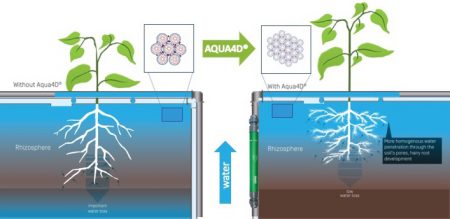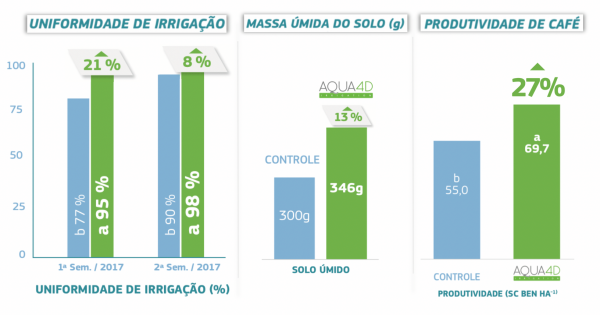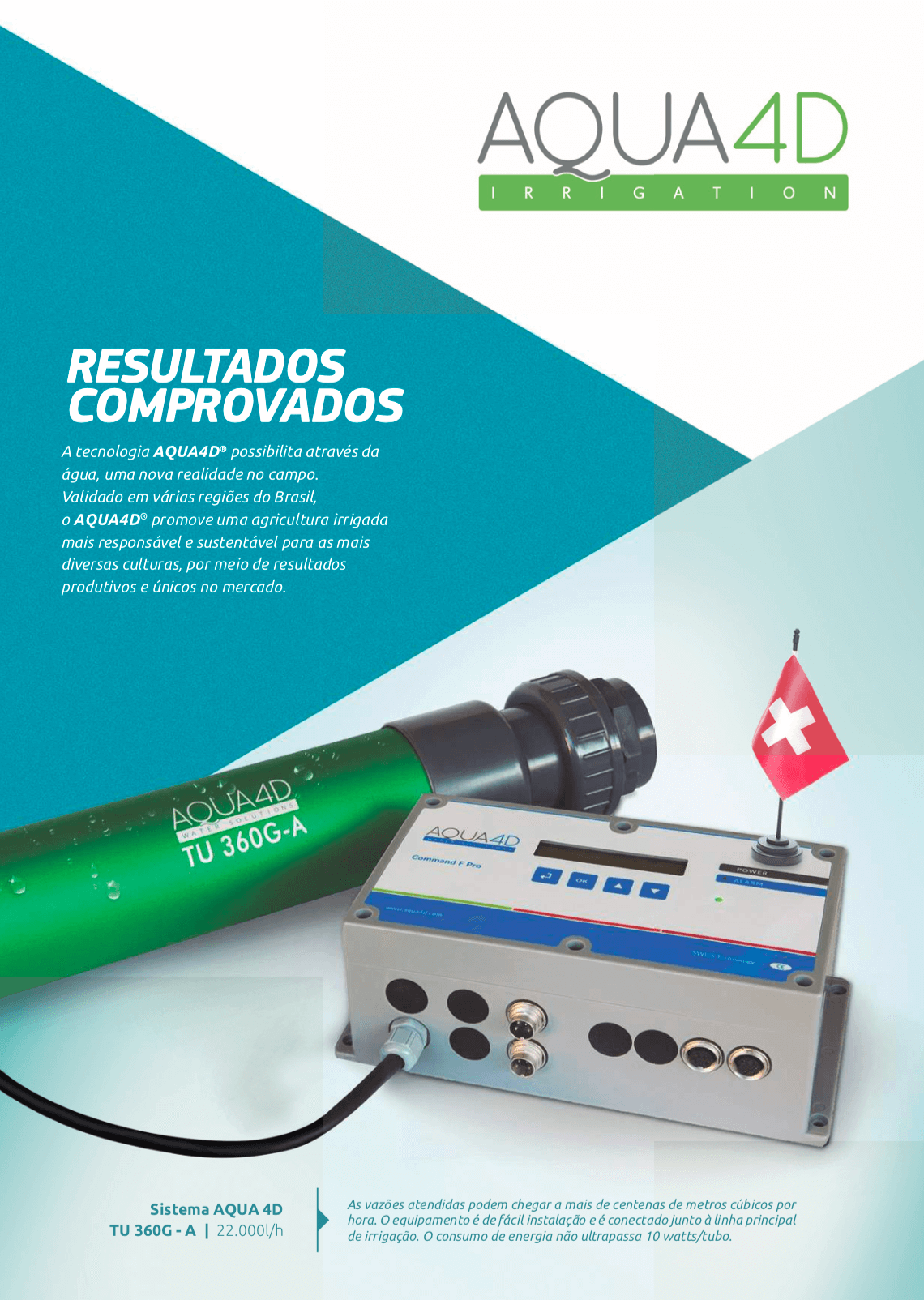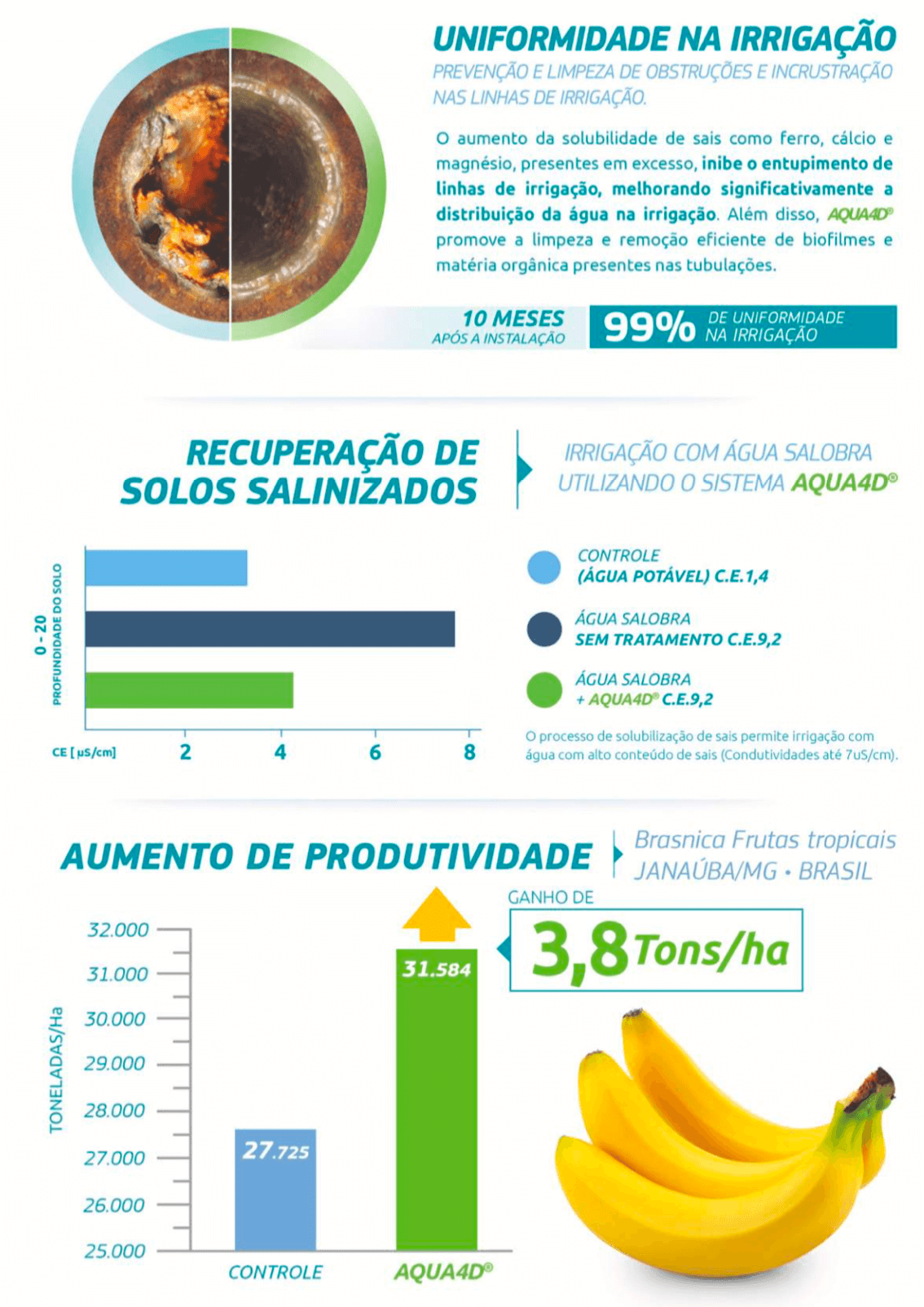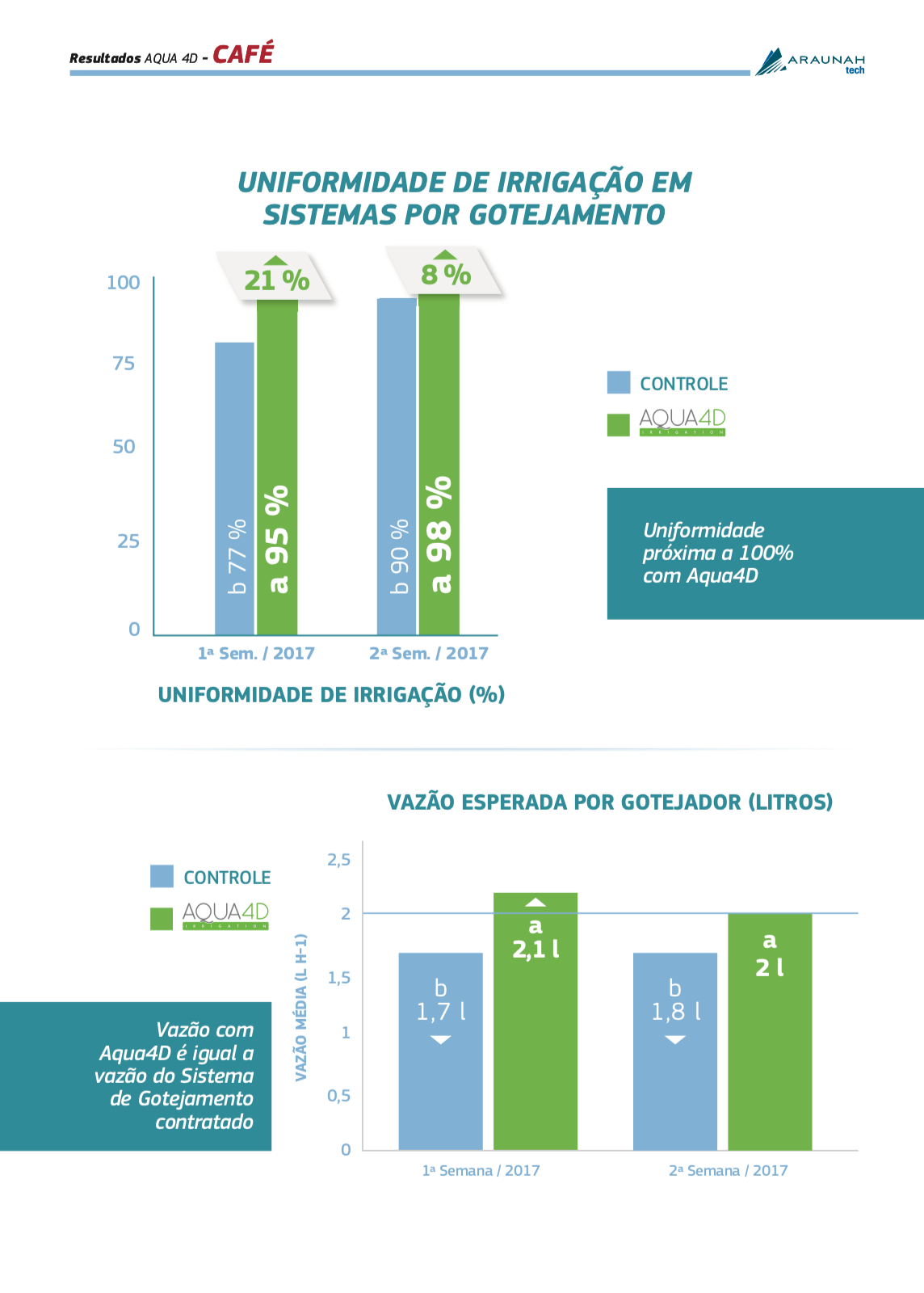Brazilian growers are increasingly adopting AQUA4D® technology to optimize their irrigation, promote water efficiency, and restore soils. Here we outline some of the proven benefits.
A whole new approach to water use
We live in challenging times for Brazilian agriculture, with increasing soil salinity, decreasing water availability, and simultaneously the need to feed a growing population. A commonality here is our use of water, and it’s clear that rising to these challenges requires a new approach. Agtech innovators like AQUA4D® are showing that sustainable water use makes business sense – truly resulting in more outputs with less inputs.
One technology, numerous solutions
The crucial difference with what AQUA4D® offers is that this cleantech not only solves standalone issues but can often lead to a multitude of direct and indirect benefits.
So while a grower may start out wanting to sustainably leach salts, they will also find themselves saving water, saving energy (resources and labor), keeping their overall system clean, and find that their soils stay moister for longer. This is truly a paradigm shift in irrigation efficiency.
Verified academically, tested in the field
Over 30 scientific studies testify to the aptitude of the AQUA4D® system, including at Instituto de Ciências Agrárias (UFU) and California State University, and collaborations with Agriculture 4.0 disruptors from the Netherlands.
Moreover, the company’s R&D team is constantly innovating, adding new crops and Field References to its portfolio. In total, over 4000 installations in more than 40 countries testify to the efficacy of the AQUA4D system in all kinds of crops and soil types. In 2021, a new EU-sponsored project will be unveiled for pivot irrigation, as well as a landmark project with UN Water and the Avocado Association in Chile.
Restoring lands
In Brazil and elsewhere, successful cases have shown how AQUA4D® helps undo years of salinization and salt accumulation. Recently, a mango grower in the São Francisco Valley reported how he had finally saved his crops: “After 6 months of irrigation with AQUA4D all salts were solubilized, leaving no crystallization on the surface of the soil. Consequently, the development and growth of the plants has been remarkable.” In another notable case, Agricola Famosa’s Richard Müller personally wrote to AQUA4D to share his success story (see here): they were able to keep irrigating with their high-EC water and due to efficient leaching they could return to two crop cycles a year on the same land.
In addition to solving existing salinity issues, AQUA4D® also improves fertilizer dissolution and means less excess minerals enter the soil. This is a new paradigm of circular water efficiency – leaching existing salts, and preventing future salinity.
Effective over long distances
Unlike other technologies, the beneficial effects of AQUA4D® have been proven across vast distances of several kilometers. This means treatment of large plots is possible (as was the case with Agricola Famosa’s 24ha plots). No matter the distance from irrigation system, the effect on the treated water remains the same.
What’s more, the system is thoroughly modular and can be customized to accommodate any flow rate. There are no magnets, no consumables, and very little maintenance.
Increased uniformity, moisture – and yields
Results from a large-scale coffee grower in Minas Gerais were a clear example of the multiple AQUA4D® benefits in action. Greater irrigation uniformity and soil moisture had a direct and profound impact on productivity come harvest time – increasing yields by 27%:
Prof. Eusímio F. Fraga from Instituto de Ciências Agrárias (UFU) told a recent AÇÃO AGRO interview: “The difference in coffee plants is clear: the size of the plants, their vigour, the colour of the leaves and, of course, the increase in productivity” (full video link here).
Improving efficiency – for sustainability and profits
AQUA4D® improves not only the water efficiency of irrigation systems, but the overall efficiency of water management and operations. The same effect on minerals discussed above also means irrigation systems stay clean and require less maintenance – saving valuable labor hours and manpower. What’s more, irrigation times and frequencies can often be significantly reduced, meaning employees can focus on other tasks.
Good for profits and planet
The end result of all this is, ultimately, increased profitability of agribusiness: labor savings, reduced irrigation times, reduced resource use, and increased plant quality & yields. Alongside water savings and no use of chemicals, this is a technology that promotes a sustainable agriculture which gives growers a fast Return On Investment and consistently higher yields, while securing a brighter future for the land they grow on.
More information:
AQUA4D: www.aqua4d-irrigation.com
Araunah Tech: www.araunah.com/tech
Brazil
Water-Smart Agriculture
Precision Irrigation
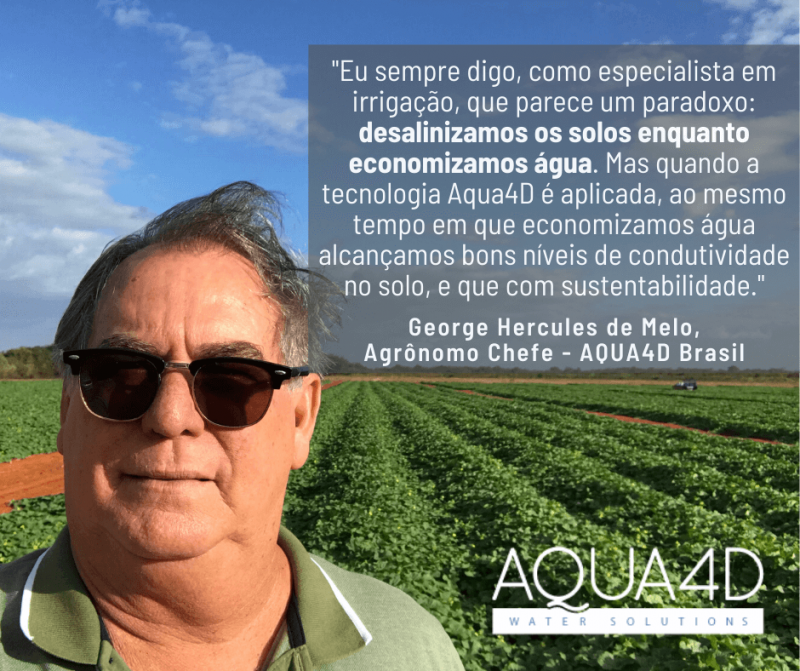
Soil salinity: Salts do not crystallize and are leached below the rhizosphere (watch animation)
Water savings: Increased efficiency and soil percolation can result in water savings of +20% (watch animation)
Clogging: Pipes and system stay clean, requiring less maintenance and no chemicals (watch animation)
Saline water: Continued irrigation with poor quality, high EC, or even saline water is possible
Nutrient uptake: Minerals and fertilizers are efficiently dissolved; plants can better absorb what they need.



